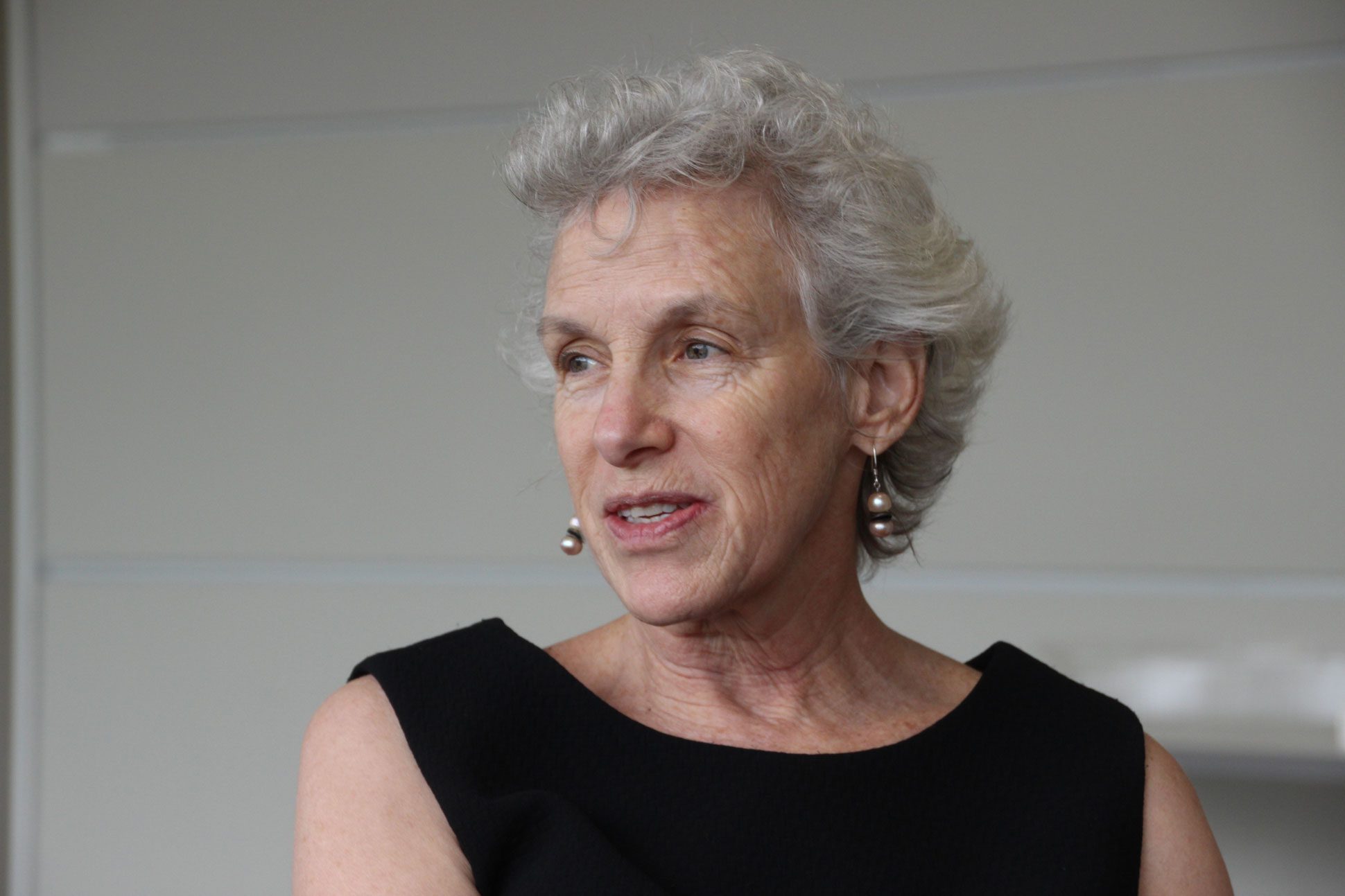Joan Williams: Telework As Possible Pandemic Silver Lining
 UC Law SF Professor Joan C. Williams argues in a new Harvard Business Review article that the pandemic is blowing up our notion of the “ideal worker,” rooted in the breadwinner-homemaker model, and could provide an opportunity to reshape attitudes about working parents and the benefits of telecommuting.
UC Law SF Professor Joan C. Williams argues in a new Harvard Business Review article that the pandemic is blowing up our notion of the “ideal worker,” rooted in the breadwinner-homemaker model, and could provide an opportunity to reshape attitudes about working parents and the benefits of telecommuting.
In her article, “The Pandemic Has Exposed the Fallacy of the ‘Ideal Worker,’” Williams writes that the average American’s workday has increased by 40%, roughly three hours a day. Now, most working parents with children are doing three jobs—their own, their childcare worker’s job and their child’s teacher’s job.
Yet many American companies claim their employees are working at 100% productivity. And tucked in that misleading statistic, Williams writes, lies a problem that is leading legions of parents to consider radical measures. According to a recent survey, 14% of women in the U.S. workforce are considering quitting their job due to work-family conflict related to COVID-19. And, perhaps more surprisingly, she notes, so are 11% of men.
The pandemic-driven divide that’s rearing its head is not so much between men and women, as between parents and non-parents, she writes. “We’re seeing the erosion of the ideal of an employee whose family responsibilities are kept tastefully out of sight.” Now kids and dogs are in Zoom calls, becoming a more natural feature of workplace interactions.
“Post-pandemic, let’s resculpt workplace ideals so they reflect people’s lives today—not a half century ago,” she writes.
The first step is to institutionalize telework. “Under COVID, many jobs that were ‘impossible to do remotely’ went remote with little transition time and modest outlays,” she writes. Three things happened: Companies invested the time and money for seamless access, older employees took the time to become more tech-adept, and supervisors figured out how to manage people without breathing down their necks.
Williams notes that pre-pandemic telecommuting is different from the crisis-related work-from-home model that’s now widespread. It requires external childcare services during work hours and an office setup that limits distractions.
“Don’t assume that telework is an all-or-nothing proposition,” Williams writes. “For many jobs and companies, the challenge will be to find the right balance of telework and on-site work,” which will vary company to company, job to job, person to person.
“Let’s work together to ensure that a silver lining of this vast and frightening pandemic is a new definition of the worker as someone who’s ambitious, focused and committed—but who must also balance work obligations with caregiving responsibilities. When 30 million kids are out of school, employers can’t just ignore that.”
Williams is Distinguished Professor of Law, Hastings Foundation Chair, and Founding Director of the Center for Worklife Law. She has authored 11 books and more than 90 academic articles.
You can read the entire article in Harvard Business Review here.